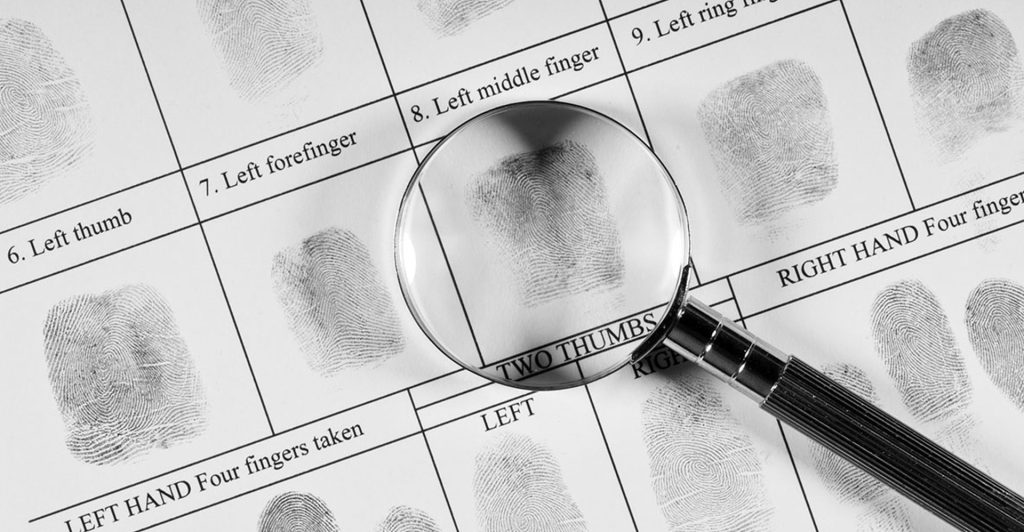Introduction
In an age of growing data breaches and identity theft, the idea of sharing your biometric data—like fingerprints—can feel unsettling. When you see a fingerprint card or digital scan going to the FBI, you might wonder: “Is FBI fingerprinting safe? What safeguards are in place to protect my privacy?”
At PDX Fingerprinting, safeguarding your data isn’t just a promise—it’s our standard. We meet strict requirements for secure capture, encrypted transmission, and confidentiality compliance every step of the way. This post unpacks the protections in place, and why FBI fingerprinting is both essential and safe.
Legal and Technical Protections for FBI Fingerprinting
1. FBI-Approved Vehicles and Software
The FBI’s eDO (Electronic Data Online) system, used for digital Livescan submissions, incorporates top-tier industry encryption (TLS/SSL) to protect your fingerprint data during transit. Only certified Livescan hardware can communicate with eDO ensuring full authentication.
2. Chain-of-Custody Protocols
Whether ink or digital, strict chain-of-custody procedures apply. Our technicians complete identity verification, log submissions, and seal any paper cards or packages into tamper-evident envelopes with round-the-clock surveillance until submitted.
3. Regulatory Oversight
Qualified under the Criminal Justice Information Services (CJIS) and in many states under HIPAA and local privacy laws, PDX Fingerprinting undergoes regular audits and follows best practices for secure data handling and employee clearance.
4. Restricted Access Policies
Only staff with authorized clearance can handle your biometrics. Once submitted, fingerprint images are encrypted and stored exclusively on FBI servers—not kept long-term by us.
Ink & Roll Submission: Still Secure
Opting for traditional FD‑258 paper cards may seem less secure—but it’s equally protected:
- Cards are sealed in tamper-evident envelopes
- Handled by chain-of-custody procedures
- Submitted via FBI-accredited mail or courier with tracking and insurance
- Archived only at licensed agency locations—never by fingerprinting providers
What Happens to Your Fingerprints After Submission?
Once your fingerprint data reaches the FBI:
- EA Response Only via Official Portal – Accessible only to authorized requestors
- Kept for Criminal Justice Purposes – Not used for unrelated investigations
- Retention Policy – Stored securely per federal regulation, subject to expungement upon legal request
- Privacy Act Rights – You can request access or correction of your record using an Identity History Summary request
Precautions Taken by PDX Fingerprinting
| Privacy Measure | How We Implement It |
| Data Capture | Verify ID and appointment data at sign-in |
| Digital Encryption | Livescan eDO encrypted at all stages |
| Background Checks for Staff | Employees screened and trained in data handling |
| Paper Card Sealing | Tamper-evident seals and tracking numbers used |
| Physical Security | Envelopes and equipment kept in locked access areas |
| Data Handling Policy | No retention of submitted prints |
| Disposal Procedures | Old cards shredded under secure protocol |
Your Privacy Rights
You’re entitled to:
- Know who accessed your data
- Request corrections or updates if inaccurate
- Withdraw authorization for background checks (if legal terms allow)
- Ask the FBI to expunge your history under certain legal grounds
These rights are explained under the Privacy Act, which safeguards the collection and use of executive agency records.
FAQ: Is FBI Fingerprinting Safe?
Q: Can fingerprint data be misused?
A: The FBI strictly limits use to criminal justice matters. It cannot be sold or used for marketing, and access is audited.
Q: Has FBI fingerprint data ever been breached?
A: There are no documented breaches of the FBI’s AFIS/eDO systems, which operate behind secured government firewalls and monitoring.
Q: What if my prints are misidentified?
A: Final identity matches are human-verified. False positive risks are very low and further investigated manually.
Q: Who can request my fingerprint data?
A: Only authorized government agencies or employers under law—never private entities without authority.
Q: Can I opt out?
A: You can refuse to submit prints if legally allowed, but it may delay or block your employment, licensing, or immigration application.
Related Services
- Live Scan eDO Submissions – fast, secure and encrypted
- Ink & Roll Services – traditional, yet fully secured
- Mobile Services – secure at your home, kept under control
- Reprint Services – if biometric rejection occurs, we handle resubmission with monitoring
Final Thoughts
Yes—FBI fingerprinting is safe, provided you’re working with certified providers like PDX Fingerprinting. With encrypted submissions, strict chain of custody, policy regulation, and oversight protocols, your biometric data is well protected.
PDX Fingerprinting adds layers of accountability and security to ensure your fingerprint data is treated with the utmost care from capture to submission.Ready for safe and secure FBI fingerprinting?
Book your appointment today and let us guide you through every secure step.


